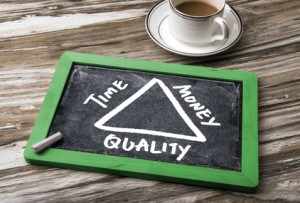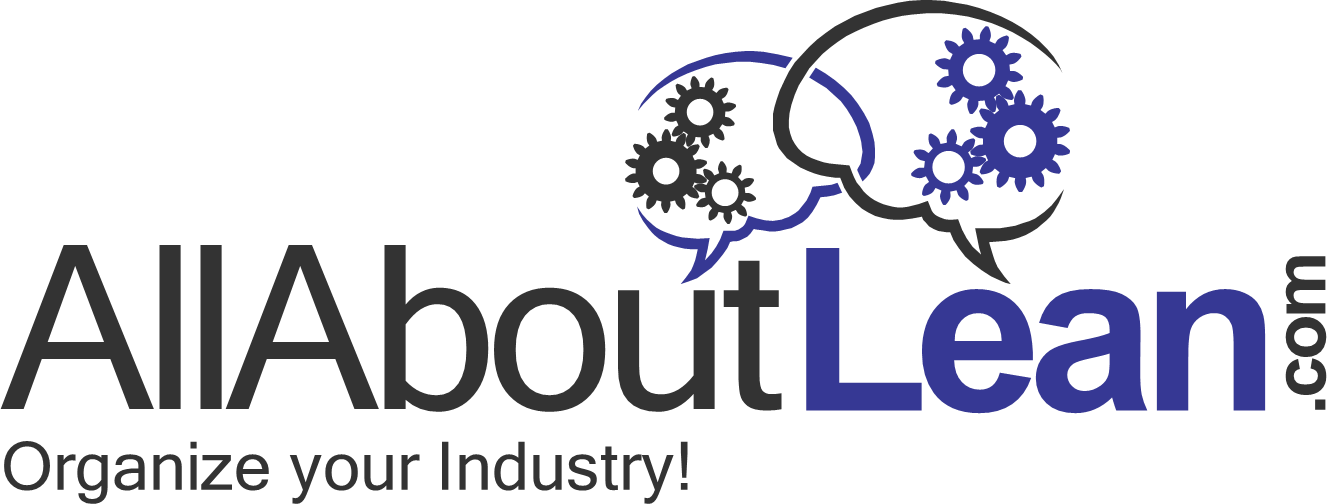
Lean manufacturing is difficult. External expertise can help you in improving your business. However, the wrong consultant can at best have no effect, or worse damage your company, or at worst kill the company. Hence the consultant you hire will have a significant impact on the outcome of the project. This post will give you some advice on how to select a good consultant.
Some (Public) War Stories
The advice of consultants can make or break a company. Here are some examples of high-quality consulting work (all examples from The Gateway, but there are plenty more out there):
- Boston Consulting successfully helped GM, Chrysler, and Ford with their turnaround after the 2008 US government bailout
- PA Consulting saved the UK Defence Ministry £17 million
- McKinsey warned beforehand about the high risk of failure of the ObamaCare website
Of course, failures are also plentiful. However, both consultants and clients like to talk about successes and try to downplay the failures. Besides, creating a direct correlation between the consultant’s advice and the failure of the project is sometimes difficult. Nevertheless, there are also stories of failures in consulting. Here are a few. As with all failures, depending on who you ask, there may be always someone else to blame:
- Oliver Wyman advised UBS to invest in sub-prime debt instruments
- Swissair went into bankruptcy after implementing a McKinsey strategy
- Oliver Wyman named an Irish Bank the best bank in the world in 2007. The next year, the Irish government was forced to nationalize the bank.
Often you will hear stories of failures associated with big names. This is simply a) because they are big and have many projects, and b) it makes a better story if everybody knows the consultancy. As an former McKinsey consultant, almost every time I introduce myself and my background to a group of people, there is one person with a jaundiced comment about McKinsey. McKinsey is not bad. It is actually quite good – although like all others it also has its share of failures.
Before You Look for a Lean Consultant
Before you look for a consultant, there are a couple of things that you should be clear about:
Know What You Want
As in most things in life, the more precisely you know what you want, the more likely you will get what you need. The fuzzier your goals are, the more likely you will be disappointed. If you pay a consulting team $250,000 to do something, they surely will do “something”.

Especially in lean manufacturing, it does not help if you narrow it down to money, time, and quality. Money, time, and quality include pretty much all problems you can possibly have on the shop floor (unless you are in legal trouble and the cops are looking for you – but let’s hope this is not the case).
One point is quite important here: You need to describe your problem clearly. However, do not fall for the temptation to describe the solution! If you tell the consultant that you want kanban, sure, you will get kanban. Unfortunately, it is far from certain that this will actually help you to improve. On the other hand, if you say that your delivery performance is bad, increasing your delivery performance will be much more likely improve your bottom line. If during the project, the team decides that kanban can help you with that, no problem. But keep the focus on the problem, not the solutions.
It is also possible that you have exhausted your list of detailed problems. You know that your performance is not yet where you want it to be, but you don’t know where to start. In this case, an analysis and comparison of the potential levers is a very valid lean consulting project.
Be Prepared for the Possibility of a Failure
Projects sometimes do fail. A good consultancy can increase the chances of success, but even then failures do happen. It is estimated that between 70% and 90% of all lean projects fail, both consulting and otherwise. Of course, the real outcome and the outcome on PowerPoint can look quite different. I estimate about 70%–90% of all consulting projects are reported as successes, even though only 10%–30% really are (see also my series on KPI fudging). In any case, be prepared for the possibility of a failure.
Of course, if you will only hire a consultancy that promises you a successful project no matter what, then you are pretty much paying someone to lie to you.
Know about Lean Manufacturing
This is a tricky one. If you know lean manufacturing, it helps you to weed out the frauds. On the other hand, if you really know lean manufacturing, you may be better off doing it yourself. From the consultant side, I can also attest that clients with a half-baked knowledge of lean are quite difficult to handle. If they think they know it all but don’t, then it makes it more difficult to have a successful project.
Ideally, you should know enough lean to sort out some of the bad consultancies, but please do not try to micromanage them. For money, most consultants will do what you want them to, but not what may have been necessary. By the way, to learn more about lean, reading AllAboutLean.com helps 🙂 .
The Beauty Contest

In consulting language, the “beauty contest” is the time where a client receives proposals from different consultancies and selects a candidate. Since it is difficult to objectively measure which one is the best, subjective impressions are relevant, quite similar to a beauty contest. Below I will give some hints on how to spot the fake noses and how to see through the makeup to find true inner beauty.
Also, do not underestimate the value of the beauty contest. After all, you do need to get along with the consultant. You could have the best consultant in the world, but the project would probably be a failure if you can’t stand each other. Hence, impressions during a beauty contest are quite relevant.
Ask your Shop Floor Management

You as the main client will spend quite a bit of time with the consultants. However, your shop floor management and their people will in all likelihood spend much more time with the consultant. Hence, it is not only the chemistry between the consultant and you that matters, but equally important the chemistry between your lower&middle management and the consultants.
Hence, do include your operative side in the decision making. If possible make a small team with a selection of foremen, team leaders, and group leaders, and possibly also department leaders and plant managers. Have this team also choose which consultant is most likely to help them in their daily business. If the consultants is impressive in boardroom power point meetings but not with the people that know the shop floor, then the results are also likely to look good on paper but will not materialize in reality.
Attitude towards “Lowly” Employees

Brief your secretary/receptionist beforehand, and ask him or her afterward how the consultants treated them. Did they greet them, smile, or even make small talk? Good!
On the other hand, disrespectful or rude behavior toward others below their perceived status is a no-go. Besides, if they don’t know yet that the assistants are some of the most powerful and important people in a company, then they know nothing!
Shop Floor Behavior
During the beauty contest, bring the consultants to the shop floor. Does it feel like their natural element? Or do they feel more comfortable in meeting rooms with PowerPoint? (See also my posts on Shop Floor Etiquette). Suit and tie can be optional on the shop floor. Do they have safety shoes with them? If I want a consultancy to change my shop floor, then I want them to be familiar with a working environment.
Buzzword Bling Bling
When the consultants are present, what part of the presentation do you actually understand? How many Japanese terms or abbreviations do they use (also see my Glossary)? Often, consultants (and others) hide their lack of understanding through the use of buzzwords or consultant-speak. While few consultants avoid such jargon altogether, an excessive use indicates low-quality understanding of lean and therefore low-quality lean consulting.
Size and Cost
Should you get a big or a small consultancy? Either one works. Often, in smaller consultancies the people in the beauty contest will also be the one doing the work. Larger ones, on the other hand, can draw on a large back office and support, and an internal network. It is a matter of choice really.
Does the price matter? Yes! I think it is like wine. If you pay $2 per bottle, expect a headache. Similarly, if you splash out $500 for a bottle, you probably won’t taste the difference from a $20 bottle, although you may feel better for having something fancy.
During the Project
There are also some things to consider while the project is ongoing.
Good Lean Consulting Will Take Your Time

Lean manufacturing in my opinion stands and falls with leadership. Hence, for a successful project, a good consultancy also wants to work with higher or top management and coach them in the way of lean manufacturing.
If, on the other hand, you expect consultants to do their job and only show up every now and then with a fancy status presentation, of course they will do that. However, the results will probably be less than with coaching of top management.
Also, a really good consultancy may sometimes also tell you things about yourself you don’t like (always a risky thing, especially with CEOs 🙁 ). Don’t shoot the messenger, but take their feedback seriously. If, however, you are in the habit of shooting the messenger, I as a consultant would rather find out sooner than later before we waste each other’s time (and your money).
Good Lean Consulting Will Take Your People’s Time
Similarly, a good consultancy needs a strong counterpart on the shop floor. The consultancy may be an expert in lean, but chances are your people are the experts in whatever gizmos you produce. The knowledge of both has to come together to make things work. A good consultancy works together with the shop floor, from the operator upward. And yes, the consultants will also learn a good deal from you.
Good Lean Consultants Teach Rather than Do
Give a man a fish and you feed him for a day; teach a man to fish and you feed him for a lifetime.
While a good lean consultancy should not be afraid to get their hands dirty, they should teach your people. For one thing, this will increase you ability to do projects yourself. More important, however, is that it will increase shop floor acceptance, and hence the likelihood of success.
Summary
Overall, it is difficult to estimate the quality of a consultancy beforehand, and even more difficult to predict the outcome of a lean project. The above points will give you some clues, but you will know for sure only afterward. You could also have a smaller test project to see how they work before giving them access to your crown jewels. Similarly, getting a trustworthy recommendation may help in finding a good consultancy, even though in both cases previous performance does not guarantee future success.
Finally, if you are daring, you can request a “no PowerPoint slide” project. Consultants often spend an insane amount of time on slides, which of course reduces the time for actual problem solving. However, taking PowerPoint away from consultants may put some consultants out of whack!
Also, as not every consultant may be right for you, not every client is right for a consultancy. Both sides have to work together to increase the chances of success, and the chemistry between consultant and client is important. Now go out and with or without help organize your industry!
PS: If you are looking for a (good?) lean consultant in or near Germany, and feel my writing makes sense, don’t hesitate to contact me 🙂

I found Toyota offer lean consulting. https://tlmc.toyotauk.com